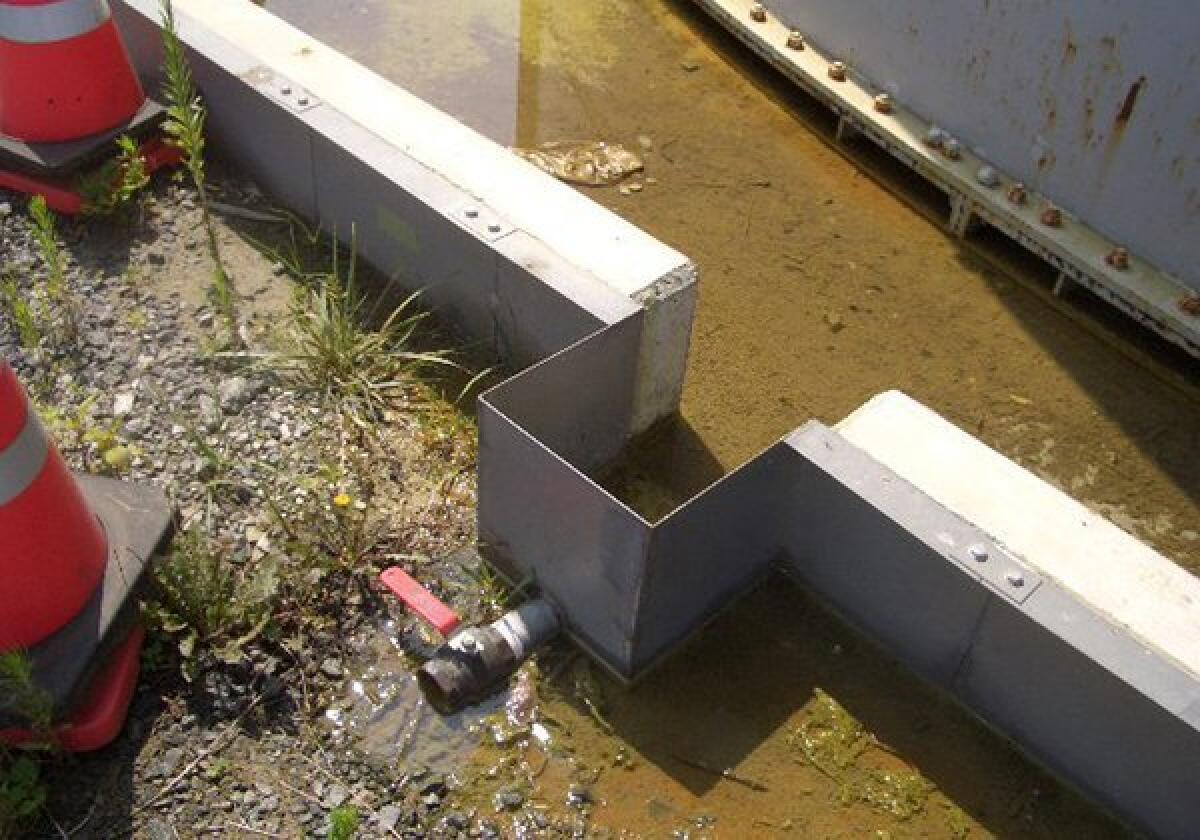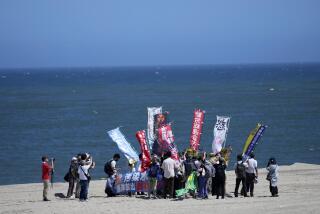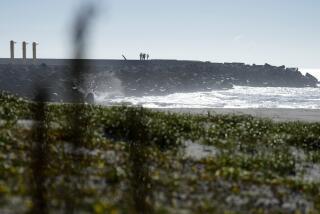Japan nuclear plant leaks 300 tons of highly radioactive water

- Share via
BEIJING -- The operator of the tsunami-damaged nuclear plant at Fukushima, Japan, said Tuesday that 300 tons of highly radioactive water had leaked from one of its storage tanks, the worst in a number of similar leaks since the catastrophic 2011 earthquake and tsunami.
Tokyo Electric Power Co. said the leak, discovered Monday morning at the Fukushima Daiichi nuclear power plant, posed no immediate threat to Pacific Ocean waters. The accident was classified by Japan’s nuclear regulator as a Level 1 incident -- the second-lowest on the scale of nuclear accidents, as classified by the International Atomic Energy Agency.
Still, it was a serious setback in the efforts to contain and clean up the damage that crippled the power plant in March 2011, the world’s worst nuclear disaster since Chernobyl.
About 1,000 tanks have been built on the ground around the plant complex to contain radioactive water that had been used to cool its damaged nuclear reactors. Three nuclear reactors melted down after the tsunami knocked out cooling systems.
On at least four previous occasions since the initial disaster, workers have discovered leaks in the tanks, though none as serious as the leak reported Tuesday.
“We are extremely concerned,” Hideka Morimoto, a spokesman for Japan’s Nuclear Regulation Authority, was quoted as telling reporters Tuesday in Tokyo.
A spokesman for Tokyo Electric said workers had put concrete barriers and sandbags around the damaged tank to contain radioactive water.
Japanese Prime Minister Shinzo Abe, a political conservative who won election last year in part on a promise to support the nuclear power industry, has promised help to Tokyo Electric to clean up the contamination.
ALSO:
Britain asked to explain detention of Snowden reporter’s partner
Former Pakistan leader Musharraf indicted in Bhutto assassination
Syrian refugees flee amid clashes between Kurds and Islamist rebels
More to Read
Sign up for Essential California
The most important California stories and recommendations in your inbox every morning.
You may occasionally receive promotional content from the Los Angeles Times.










